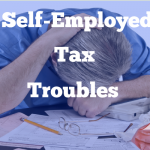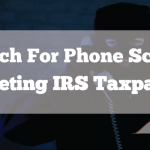Craig Thomas
Latest posts by Craig Thomas (see all)
- Chris Feels Victorious - September 8, 2016
- Are You At Risk of a Levy? - May 26, 2016
- 3 Ways To Survive Your Spouse’s Tax Troubles - February 15, 2016

Have you ran across those tax preparation companies who practically guarantee you a large refund, without even reviewing your financial information?
Well, the good news is, like the great Houdini, there are actually tax prepares who can use their ‘magic’ to live up to their promises, 100% of the time. The bad news is, the refund could be temporary, as the IRS Audit department is good at exposing a hoax. It may take months, or even years later to discover that the trick was actually on you!
On Tuesday, Feb. 11, a three-judge panel of the U.S. Court of Appeals for the District of Columbia unanimously upheld a lower court’s ruling that the IRS has no authority to force tax preparers to take continuing education courses and tests. The result of this decision will surely make life easier for those refund magicians to continue to operate in the loosely regulated tax preparation industry. Unfortunately, the decision has increased the challenge for Individuals in finding a reputable tax professional.
Here are 10 tips from the IRS to protect you from falling for the ‘sleight of hand’ tricks of an unscrupulous tax preparer:
1. Check the preparer’s qualifications. All paid tax preparers are required to have a Preparer Tax Identification Number or PTIN. In addition to making sure they have a PTIN, ask the preparer if they belong to a professional organization and attend continuing education classes.
2. Check the preparer’s history. Check with the Better Business Bureau to see if the preparer has a questionable history. Check for disciplinary actions and for the status of their licenses. For certified public accountants, check with the state board of accountancy. For attorneys, check with the state bar association. For enrolled agents, check with the IRS Office of Enrollment.
3. Ask about service fees. Avoid preparers who base their fee on a percentage of your refund or those who say they can get larger refunds than others can. Always make sure any refund due is sent to you or deposited into your bank account. Taxpayers should not deposit their refund into a preparer’s bank account.
4. Ask to e-file your return. Make sure your preparer offers IRS e-file. Any paid preparer who prepares and files more than 10 returns for clients generally must file the returns electronically. IRS has safely processed more than 1.2 billion e-filed tax returns.
5. Make sure the preparer is available. Make sure you’ll be able to contact the tax preparer after you file your return – even after the April 15 due date. This may be helpful in the event questions come up about your tax return.
6. Provide records and receipts. Good preparers will ask to see your records and receipts. They’ll ask you questions to determine your total income, deductions, tax credits and other items. Do not use a preparer who is willing to e-file your return using your last pay stub instead of your Form W-2. This is against IRS e-file rules.
7. Never sign a blank return. Don’t use a tax preparer that asks you to sign a blank tax form.
8. Review your return before signing. Before you sign your tax return, review it and ask questions if something is not clear. Make sure you’re comfortable with the accuracy of the return before you sign it.
9. Ensure the preparer signs and includes their PTIN. Paid preparers must sign returns and include their PTIN as required by law. The preparer must also give you a copy of the return.
10. Report abusive tax preparers to the IRS. You can report abusive tax preparers and suspected tax fraud to the IRS. Use Form 14157, Complaint: Tax Return Preparer. If you suspect a return preparer filed or changed the return without your consent, you should also file Form 14157-A, Return Preparer Fraud or Misconduct Affidavit.






